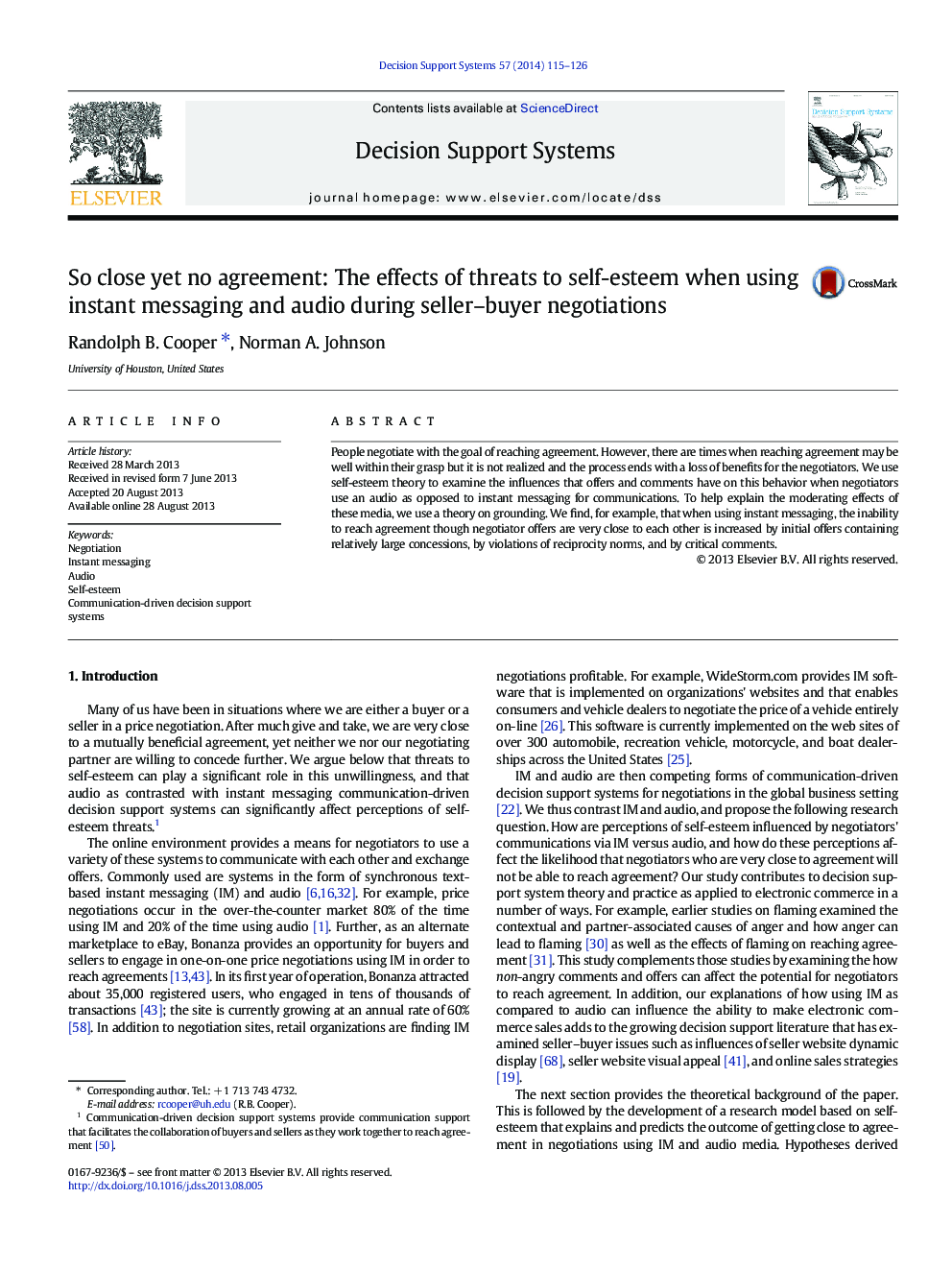| Article ID | Journal | Published Year | Pages | File Type |
|---|---|---|---|---|
| 552626 | Decision Support Systems | 2014 | 12 Pages |
•We examine why some negotiations end without agreement even though the ending offers are very close.•We focus on how offers and comments are perceived as threats to self-esteem.•We explore how the use of IM versus audio media can moderate these perceived threats.•We find that initial offers with large concessions can result in close offers but no agreement.•We also find that reciprocity violations and critical comments can result in close offers but no agreement.
People negotiate with the goal of reaching agreement. However, there are times when reaching agreement may be well within their grasp but it is not realized and the process ends with a loss of benefits for the negotiators. We use self-esteem theory to examine the influences that offers and comments have on this behavior when negotiators use an audio as opposed to instant messaging for communications. To help explain the moderating effects of these media, we use a theory on grounding. We find, for example, that when using instant messaging, the inability to reach agreement though negotiator offers are very close to each other is increased by initial offers containing relatively large concessions, by violations of reciprocity norms, and by critical comments.
